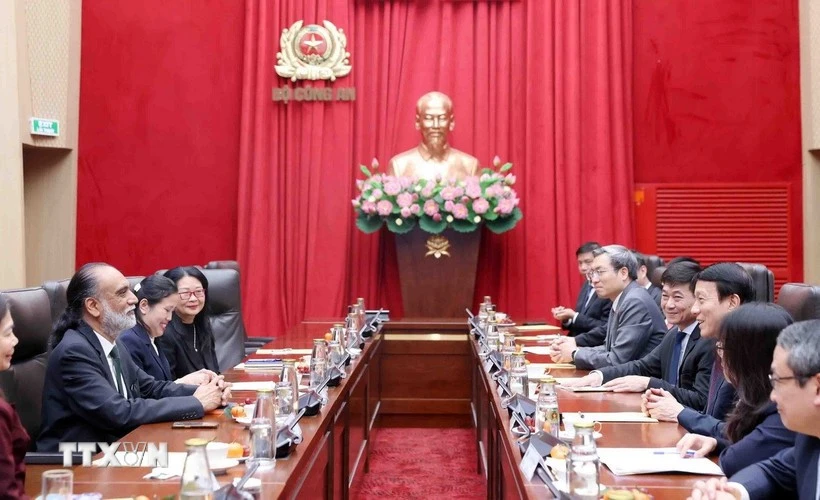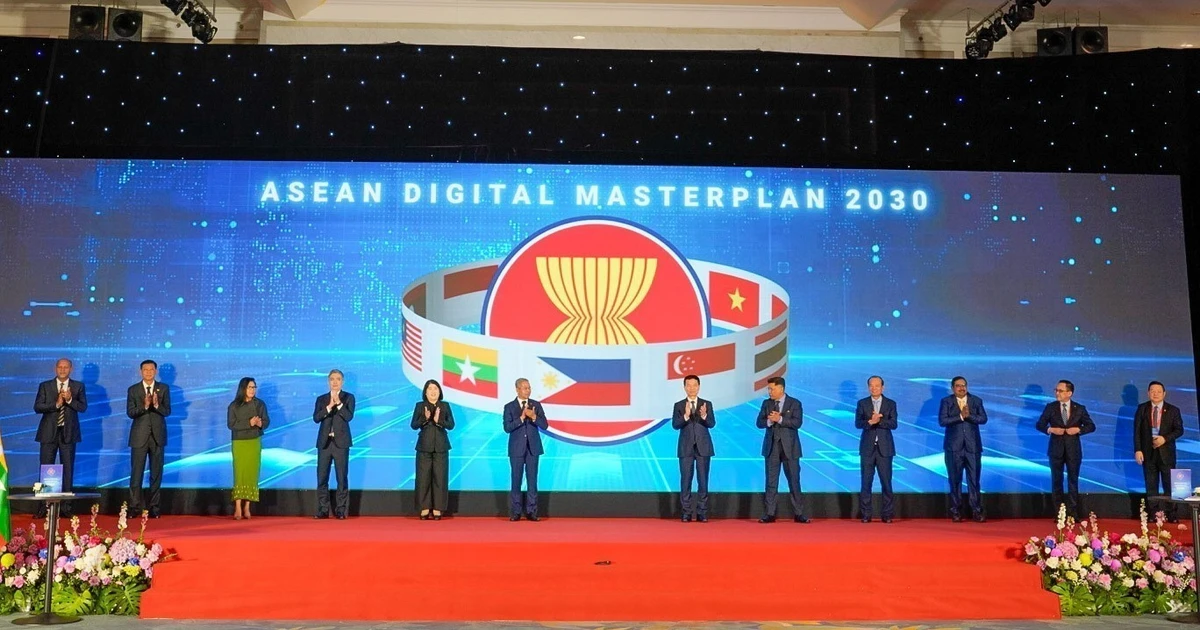The resolution lays the groundwork for the introduction of new policies, which the business community has welcomed as a golden opportunity for growth and breakthrough.
Pioneers of innovation
Resolution No. 68-NQ/TW is not a preferential treatment for a particular economic sector, but rather an essential step in the nation’s comprehensive development strategy. Together with Resolution No. 57-NQ/TW, it underscores a bold policy shift: the transition of research and development (R&D) activities—aimed at creating new products, services, and processes—from research institutes and universities to businesses, through the establishment of in-house research institutes and science centres within corporations and enterprises. At the same time, R&D in universities is also oriented toward applied research and technology transfer.
The creation of research systems within corporations is designed to be complementary to public research institutions, aligning with a clearly defined strategic objective. Public research institutions are tasked with addressing fundamental national science and technology challenges and are heavily invested in to focus on the development of foundational and core technologies that will provide long-term support for the entire economy.
In contrast, enterprise-driven research is tightly linked to market demands and production applications, helping to reduce the lag between research and real-world application. State seed funding for business-led research serves as a catalyst to attract private investment, enabling each technological challenge to garner significant societal investment.
One of the new highlights of Resolution No. 68-NQ/TW is its clear political will to recognise and reinforce the role and mission of the private sector in the nation's rise.
One of the new highlights of Resolution No. 68-NQ/TW is its clear political will to recognise and reinforce the role and mission of the private sector in the nation's rise. According to lawyer Trương Anh Tu, Chairman of Truong Anh Tu Law Firm and standing member of the Central Committee of the Vietnam Association for Environmental Economics, the institutional reforms outlined in the Resolution go beyond streamlining administrative procedures—they represent a fundamental shift in governance thinking. Public power is now clearly defined and appropriately constrained to better serve businesses, citizens, and the overarching development goals.
Resolution No. 68-NQ/TW is closely linked to Resolution No. 57-NQ/TW in positioning private enterprises not only as drivers of economic growth but also as central players in science, technology, innovation, and digital transformation. Rather than merely tasking businesses with executing innovation, the Resolution recognises innovation and digital transformation as key levers for business development and competitiveness enhancement.
According to Pham Duc Nghiem, Deputy Director of the Department of Startups and Technology Enterprises (Ministry of Science and Technology), this reversed approach reflects a modern policy mindset, viewing innovation and digital transformation not simply as technical activities but as strategic tools to elevate the private sector and drive economic breakthroughs. The Resolution is grounded and actionable: when businesses understand the core principles and pathways, implementation becomes effective.
Enterprises await policy green light
In response to Resolution No. 68-NQ/TW, many businesses have expressed that it brings a fresh breeze, reigniting the ambition and aspirations of private enterprises.
According to Phan Van Hieu, Chairman of CVI Pharmaceutical and Cosmetic Joint Stock Company, private enterprises—including those in the pharmaceutical sector—will receive more support in research, production, and distribution, enabling them to create high-quality products that meet domestic needs and reach international markets. A key highlight of the Resolution is the "sandbox" mechanism that allows businesses to apply new technologies—such as artificial intelligence, blockchain, and biotechnology—without being constrained by outdated regulations.
This paves the way for high-tech pharmaceutical startups to develop cutting-edge solutions, from new drug research to smart supply chain management. Implementing the sandbox mechanism requires tight oversight to ensure safety and effectiveness, especially in the pharmaceutical industry, which is directly tied to public health. In addition, access to capital remains a major obstacle for many pharmaceutical tech startups, particularly in localities. Intellectual property protection also needs more attention to encourage bold investment in invention and new product development.
Businesses emphasise that to fully leverage the opportunities presented by Resolution No. 68-NQ/TW, the support of the state and relevant stakeholders is crucial. The government should promptly issue detailed guidance for the effective implementation of new mechanisms.
Businesses emphasise that to fully leverage the opportunities presented by Resolution No. 68-NQ/TW, the support of the state and relevant stakeholders is crucial. The government should promptly issue detailed guidance for the effective implementation of new mechanisms.
According to Pham Duc Nghiem, to help the business community—especially small and medium-sized enterprises—actively contribute to national development, there must be a comprehensive set of solutions from both the government and the business sector. The government should accelerate administrative simplification, streamline tax regulations, business licensing, and investment approvals. Additionally, financial support policies such as preferential loan funds and technology investment support programmes for SMEs are essential to help them access the necessary resources for development. These supports will form the foundation for businesses to grow and thrive in an increasingly competitive environment.
The government must also implement policies that directly support enterprises in adopting digital technologies and fostering innovation. This includes workforce training in IT, AI, big data, and the Internet of Things for SMEs, while also building platforms that connect enterprises so they can share experiences, resources, and co-create new products and services.
A key factor in enhancing business competitiveness is close cooperation with R&D institutions, research institutes, and universities. The government can facilitate this through public-private partnership (PPP) programmes in R&D, helping businesses access public resources such as facilities, research infrastructure, and high-quality human resources, thereby strengthening their internal technological capabilities.
Additionally, the state should encourage domestic enterprises to participate in national key infrastructure projects such as airports, seaports, highways, and nuclear power—from research to project implementation—so that they gradually master core technologies.
It is also essential to promote and support innovative startups by establishing support funds and innovation hubs, such as innovation centres, to foster creative startup models, deliver new products and services, and stimulate economic growth.
















